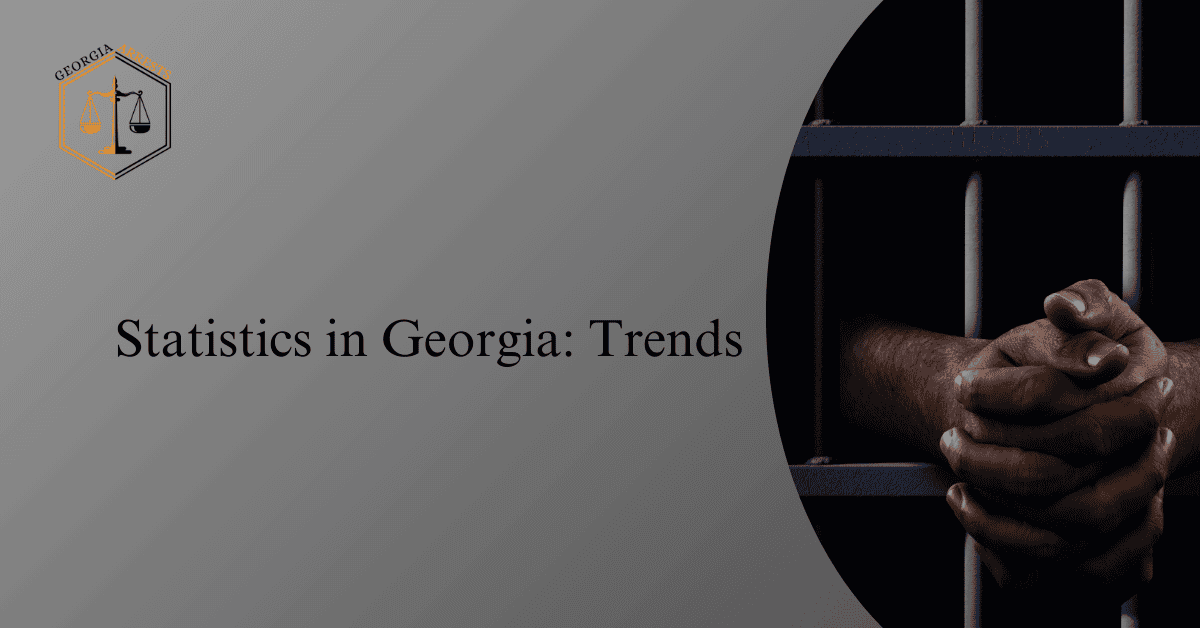Statistics in Georgia: Trends
Statistics in Georgia: Trends showcase the ever-evolving landscape of data analysis in the state. From population demographics to economic indicators, the numbers paint a vivid picture of Georgia’s progress and challenges. Dive into the realm of statistical trends to uncover the stories hidden within the data.
Statistics in Georgia: Trends sheds light on the patterns and shifts that shape the state’s trajectory. By delving into the data-driven narratives, one can grasp the pulse of Georgia’s growth areas and areas that require attention. Stay informed and engaged with the dynamic statistical landscape of Georgia.
Overview of Georgia’s Sentencing Laws
Georgia’s sentencing laws play a crucial role in the criminal justice system of the state. These laws determine the punishment for individuals convicted of various offenses, taking into account several factors.
Factors Considered in Determining Sentences
When determining sentences, several critical factors come into play. The nature and severity of the offense, including any aggravating or mitigating circumstances, are primary considerations. The defendant’s criminal history and prior convictions also weigh heavily in sentencing decisions. Additionally, factors such as remorse, cooperation with authorities, and the impact on victims or society at large are taken into account. Sentencing guidelines and statutory requirements further guide judges in ensuring fairness and consistency in legal outcomes. Understanding these factors is essential for individuals facing legal proceedings to anticipate potential sentencing outcomes effectively.
Severity of Offense
The severity of the offense committed is a key factor in determining the sentence imposed on an individual. More serious crimes typically result in harsher punishments, while minor offenses may lead to lesser penalties.
Offender’s Criminal History
An individual’s criminal history is also taken into consideration when determining a sentence. Repeat offenders may face more severe consequences compared to first-time offenders.
Mitigating Circumstances for Lesser Punishment
In some cases, mitigating circumstances such as lack of criminal intent or cooperation with authorities can lead to a lesser punishment for an offender. Judges consider these factors when deciding on a sentence.
Importance of Understanding Georgia’s Sentencing Laws
Understanding Georgia’s sentencing laws is crucial for navigating the legal landscape effectively. These laws dictate the severity of penalties for various offenses, impacting individuals’ futures significantly. By comprehending these regulations, individuals can make informed decisions, potentially influencing outcomes in legal proceedings. Knowledge of Georgia’s sentencing laws empowers individuals to strategize effectively with legal counsel, ensuring fair treatment and just outcomes. Stay informed about Georgia’s sentencing laws to protect rights and secure favorable resolutions in legal matters.
Defendants’ Rights Protection
Understanding Georgia’s sentencing laws is essential for defendants to protect their rights during legal proceedings. Knowing the potential consequences of different offenses can help individuals make informed decisions.
Legal Professionals’ Role in the Process
Legal professionals, including lawyers and judges, play a crucial role in applying Georgia’s sentencing laws effectively. They ensure that the legal process is followed correctly and that individuals receive fair treatment under the law.
Navigating the Legal System Effectively
Having knowledge of Georgia’s sentencing laws can help individuals navigate the legal system more effectively. By understanding the potential outcomes of their actions, individuals can make informed choices and take appropriate steps to defend themselves.
Frequently Asked Questions
Our Frequently Asked Questions section aims to provide you with comprehensive answers to common queries about Statistics in Georgia: Trends. Here, you will find detailed explanations to address your concerns and enhance your understanding of this topic.
What are the current statistical trends in Georgia?
Georgia’s statistical trends are constantly evolving, influenced by various factors such as economic growth, population changes, and social dynamics. Understanding these trends requires a deep dive into statistical data and analysis to grasp the underlying patterns and implications.
How can statistical data be utilized to make informed decisions?
Statistical data serves as a valuable tool for decision-making in various fields, including business, healthcare, and public policy. By analyzing trends and patterns, stakeholders can gain insights that guide strategic choices and optimize outcomes.
What signs should you watch when studying stats in Georgia?
When analyzing statistics in Georgia, key indicators to monitor include demographic shifts, economic indicators, education outcomes, and healthcare metrics. These indicators provide a comprehensive view of the state’s social and economic landscape.
How do statistical trends in Georgia compare to national averages?
Comparing statistical trends in Georgia to national averages offers valuable insights into the state’s performance relative to the broader country. By identifying areas of strength and potential improvement, stakeholders can tailor strategies to drive positive change.
What ways do people usually use to study trends in numbers in Georgia?
Methodologies for analyzing statistical trends in Georgia vary based on the nature of the data and research objectives. Common approaches include regression analysis, time series modeling, and data visualization techniques to uncover patterns and relationships.
How do people find and understand stats about Georgia trends?
Accessing and interpreting statistical data related to Georgia trends requires familiarity with data sources, analytical tools, and statistical concepts. By leveraging resources such as government databases, academic research, and data visualization platforms, individuals can gain valuable insights into the state’s trends.







